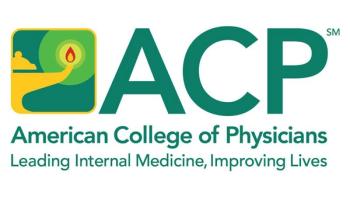
How genes may influence anti-VEGF treatment
Patients may respond differently to anti-vascular endothelial growth factor (VEGF) treatments for neovascular age-related macular degeneration (nAMD) depending on their genotypes, researchers say.
Patients may respond differently to anti-vascular endothelial growth factor (VEGF) treatments for neovascular age-related macular degeneration (nAMD) depending on their genotypes, researchers say.
A meta-analysis of studies on polymorphisms in the VEGF-A gene and its receptor (VEGFR-2) showed that people with the polymorphism rs833061 were more likely to benefit from anti-VEGF treatment, particularly when the treatment is ranibizumab (Lucentis, Roche) and when the patients are of Asian heritage.
The study by Mingxing Wu and colleagues at the Chongqing Medical University in Changqing, China, appears in the
There is a significant amount of evidence that the gene VEGF-A is a major mediator of angiogenesis and vascular leakage in nAMD, the researchers wrote. Because VEGF-A binds to VEGFR-2 to stimulate angiogenesis within tissues, SNPS within VEGFR-2 could predict responses to anti-VEGF therapy.
Previous studies on the influence of genetic factors in anti-VEGF treatments have had mixed results, with some showing an association and others not.
Since these have been small studies, Wu and colleagues provided what they believe is the first systematic review. They found 8 studies investigating 9 genetic variations in VEGF-related genes. They also found 7 studies with data on ethnicity. Most of the studies included ranibizumab as the anti-VEGF agent and follow-up ranged from 4 to 12 months.
Wu and colleagues used both best-corrected visual acuity (BCVA) and central subfield retinal thickness as measures of treatment success.
They performed a meta-analysis on 8 single-nucleotide polymorphisms (SNPs) in VEGF-A and 1 in VEGFR-2. They “unexpectedly” only identified 1 SNP with even a marginally significant association with response to anti-VEGF treatment, they wrote.
For this polymorphism, rs833061, anti-VEGF treatment was much more effective in patients having the CC or CT genotypes.
· In the comparison of CC with TT, the odds ratio (OR) was 2.22 with a 95% confidence interval (CI) of 1.252 to 3.944, (P = 0.006).
· For CT verus TT, the OR was 2.222, 95% CI 1.252 to 3.944, (P = 0.006).
· For CC versus CT+TT, the OR was 2.462, 95% CI 1.414 to 3.946 (P = 0.001).
The allele model (C versus T) and dominant model (CC+CT versus TT) were not associated with an altered treatment response for the rs833061 SNP.
The presence of CC was associated with better outcomes than TT (P = 0.006), as was CT versus TT (P = 0.001). At the same time, T and C had similar outcomes.
In analysing subgroups, the researchers found anti-VEGF treatment response for East Asians the rs833061 SNP was particularly likely to be a predictor of anti-VEGF response (CC versus TT: OR = 2.903, 95% CI 1.150 with 7.330, (P = 0.024); CT versus TT: OR = 3.849, 95% CI 1.522 to 9.733, (P = 0.004); and CC versus CT+TT: OR=3.339, 95% CI 1.369 to 8.145, (P = 0.008)).
When ranibizumab was the only treatment, the association to phenotype was particularly strong. In the CT versus TT genotype, the OR increased from 2.537 to 3.327 (95% CI 1.709 to 5.590, (P = 0.000)). Similarly, in CC versus CT+TT, the OR increased from 2.362 to 3.091 [95% CI 1.025 to 3.661, (P = 0.000)). In CC versus TT, the OR remained about the same at 2.222.
The SNPs in this meta-analysis are variants of VEGF-A and VEGFR-2, best known to be associated with outcomes in VEGF mediated diseases such as nAMD, diabetic retinopathy, and various malignancies, the researchers noted.
Five of these SNPs-rs833061, rs699946, rs699947, rs1570360, and rs2010963-are in the promoter region of VEGF-A and affect gene splicing, resulting in changes in VEGF expression levels.
Although only one study in the meta-analysis showed a significant association between rs833061 and response to anti-VEGF therap, for the recessive model, the effect of the gentotype CC pointed in the same direction in other studies.
For this polymorphism, the C allele has shown an association with increased promoter activity, which could be due to a lower expression of VEGF-A in patients expressing CC. This could account for the better response to ranibizumab’s antiangiogenic effect.
The authors could not rule out the effects of other SNPs because the number of studies on them was limited, they wrote.
Other SNPS from this meta-analysis were in the intron regions of VEGF-A: rs1413711, rs2146323, and rs833069. The remaining SNP, rs2071559, is located in the gene that encodes the primary receptor responsible for the majority of the angiogenic effects of VEGF, the VEGFR-2 (kinase insert domain-containing receptor KDR).
The meta-analysis pointed to limitations in the existing literature on anti-VEGF therapy, Wu and colleagues wrote. They found that there are not enough studies on VEGF-related genes, and the findings are contradictory.
It would be helpful to test the relationships of genetic and environmental factors, such as smoking, they wrote.
They believe such research could lead to the identification of biomarkers that could predict patient response to therapy, guiding treatment plans.
Newsletter
Keep your retina practice on the forefront—subscribe for expert analysis and emerging trends in retinal disease management.




























